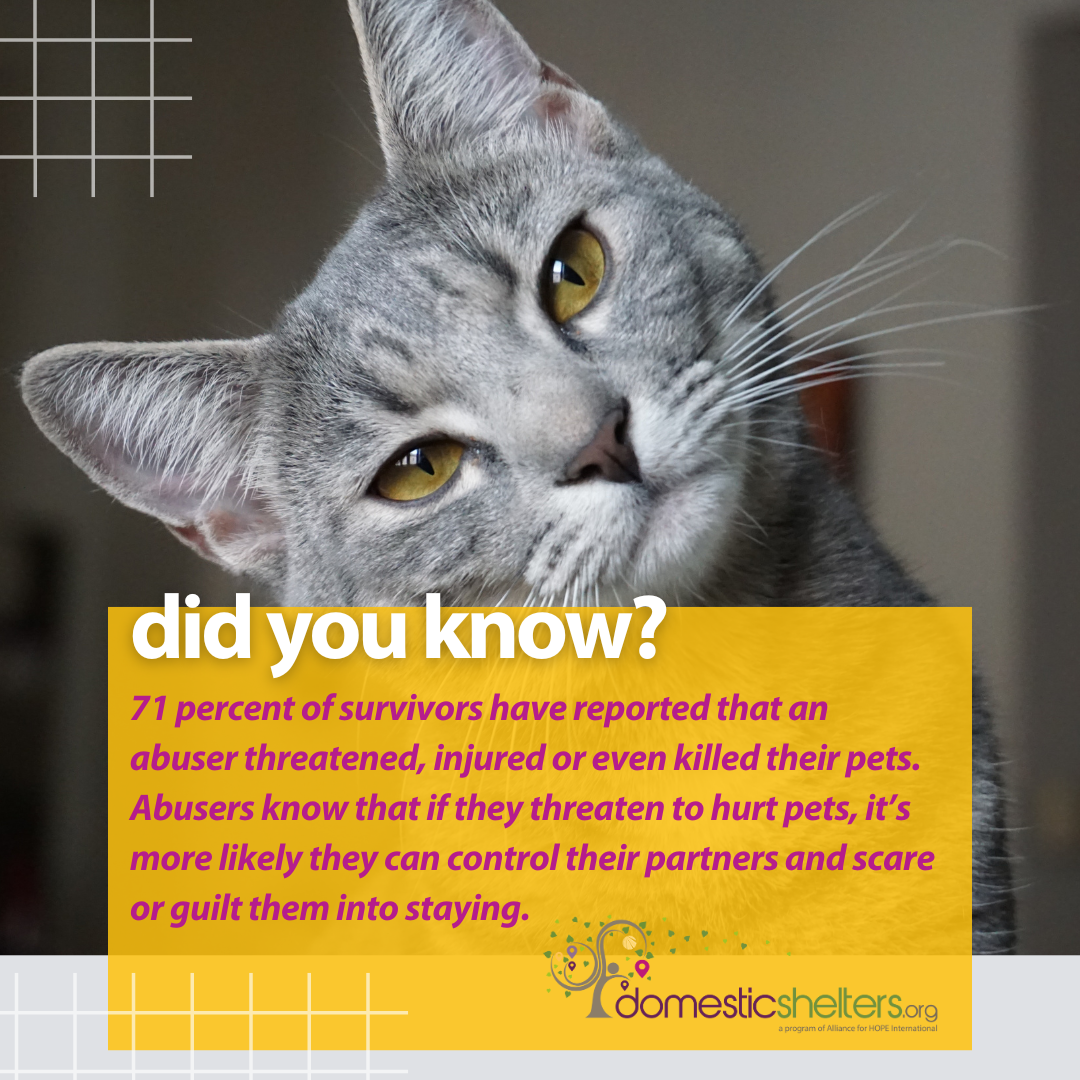1. Select a discrete app icon.

notes
Ask Amanda: I Can't Leave My Pets With My Abuser
Organizations help find places for pets to go when survivors need to escape domestic violence
- Aug 12, 2024

This piece was written in 2016. It was updated in 2024.
Q: Are there organizations that help place pets in loving families when survivors leave? I can’t leave my animals behind with my abuser and I don’t want to surrender them to an animal shelter, but I have to leave. – Michelle W.
I can understand your concern. As someone with two cats, two dogs and a newly adopted tortoise, our pets are family. I can imagine how scary it would be to contemplate leaving them behind with an abusive partner when you need to escape or giving them to a shelter where I’d worry about them feeling abandoned.
Many survivors of domestic abuse will delay leaving an abuser because they’re worried about their pets’ safety. Studies show upwards of 71 percent of survivors have reported that an abuser threatened, injured or even killed their pets. Abusers know that if they threaten to hurt pets, it’s more likely they can control their partners and scare or guilt them into staying.

However, your safety and the safety of your children, if you have them, is just as important. It’s vital that survivors understand that abusers almost always escalate, and to learn the warning signs that abusers are heading toward homicide. Before assuming that you can’t leave without your pets, reach out to a domestic violence shelter near you and ask about options. When you look for help with DomesticShelters.org, you can narrow your search to shelters that accept pets. Some shelters have on-site boarding facilities or even let pets stay with a survivor in their room. Other shelters work in partnership with a local animal shelter that will foster your pet until you find a more permanent living situation. This may include non-traditional pets, like horses, ducks, chickens and other farm animals. I know it may seem scary to surrender your animal to a shelter for fostering, but if it’s only temporary, it’s better than leaving them behind with a dangerous partner.
Unfortunately, not every domestic violence shelter is able to welcome pets along with their humans—currently, it’s estimated about 15 percent of domestic violence shelters accept pets, but a nonprofit called RedRover is working on changing that. Their goal is to help at least 25 percent of domestic violence shelters become pet-friendly by the end of 2025.
I know you specifically asked if there are organizations that help place pets in homes when survivors leave. This leads me to believe that you’d like to rehome an animal or know of someone who does. I can understand that this might be your safest or only option. Below are a few things to consider if you choose to rehome a furry family member:
- Check first with friends, family members or coworkers to see if they might be willing to take your pet. If possible, it’s better if your abusive partner doesn’t know where the pet goes for that person’s safety.
- Contact a breed-specific rescue group which may have foster homes available to keep your pet until you can get to safety.
- Talk to your veterinarian—they may have an idea of a person or foster group that can take in your pet in an emergency situation.
- Consider using the Adopt-a-Pet Rehoming Tool. It allows you to more safely connect with individuals looking to adopt your pet and staff review posts to create a second layer of safety, such as preventing breeder sales.
- Conduct a search on the Safe Havens for Pets website which was started by the Animal Welfare Institute in 2011. It’s a directory of resources specifically for pets caught in domestic violence situations.
Before leaving with your pet, it’s a good idea to have proof of custody of the animal, especially if there is an upcoming court hearing. The abuser may try to claim they “own” the pet. Proof of custody can look like any of the following:
- Any documentation showing you adopted or purchased the pet originally.
- An animal license registered with your name as the owner.
- Vet bill receipts in your name.
- Other pet-related expenses that you’ve paid for such as grooming, boarding, food, classes or supplies.
- Any documentation that shows that you, the survivor, spent the majority of the time with the pet or kept the pet after a separation.
- Additionally, you may be able to have witnesses testify that they saw you were the one who provided consistent care for the pet or that they witnessed abuse of the animal by the other partner.
Additionally, if you decide to get an order of protection, in at least 36 states pets are permitted to be included on that order. Even if your state is not on that list, consider listing any incidents of pet abuse or threats of harm to your animals in your application, so that it can be on record. A survivor can also petition the court to assist with safely removing the pet from the abuser’s custody if they are in danger.
Final note: If you know someone who is trying to escape abuse, consider opening your home to their pet, if possible. You could help remove another barrier to the survivor leaving. No person deserves to feel unsafe at home, and the same goes for our animal friends.
Donate and change a life
Your support gives hope and help to victims of domestic violence every day.
Have a question for Ask Amanda? Message us on Facebook, Twitter or email AskAmanda@DomesticShelters.org.
Ask Amanda is meant to offer helpful resources and information about domestic violence. If in crisis, please reach out to your nearest domestic violence shelter for the guidance of a trained advocate.







